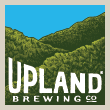[et_pb_section bb_built=”1″][et_pb_row][et_pb_column type=”4_4″][et_pb_image _builder_version=”3.10.2″ src=”https://uplandbrewing.wpengine.com/wp-content/uploads/2018/08/1020679.jpg” /][et_pb_text _builder_version=”3.10.2″]
This year, The Hub and Upland turn 20, and we are celebrating together! At The Hub, we know having a community is one of the most important aspects of alleviating the stresses of poverty. Local businesses contribute to building a healthy community through the choices they make- from where they purchase food to how they support their staff. This is why The Hub is grateful to partner with Upland for our celebration, an organization that shares many of our values, including supporting local farmers. Mother’s Harvest, a juicy wet-hopped India pale ale, will be made from hops grown by farmers who live and work here in Southern Indiana. Bloomington is made stronger by this choice, enriched by both the economic impacts of buying locally, and the joy of drinking something grown and crafted by our neighbors.
We share this story with you, about a program that The Hub introduced last year that is building the capacity of our patrons who are farmers. It’s a program that aligns with Upland’s commitments to community and sustainability, and we think those who love Upland will love our Farm Stand.
[/et_pb_text][et_pb_image _builder_version=”3.10.2″ src=”https://uplandbrewing.wpengine.com/wp-content/uploads/2018/08/pantry-veggies.jpg” /][et_pb_text _builder_version=”3.10.2″]
On the second Thursday of each month, Hub staff members clear out the parking lot. Garden, Nutrition, Food Pantry, and Advocacy interns work together to set up tents, tables, extension cords, and decorations. Hub community members start unpacking their stock; tables are suddenly full of cartons of eggs, tomato seedlings ready for transplant, and handcrafted goods made of ceramics, yarn, or recyclables. A musician strikes the first cord, and the Hub Farm Stand begins!
For many, the Hub is best known for its Food Pantry and Education programs. Serving roughly 4,000 individuals each week, MHC works to increase access to nutritious food in ways that cultivate dignity, community, and self-sufficiency. As of 2017, the Hub Farm Stand has become a part of that mission.
Each month the Farm Stand provides space for Hub patrons to sell homegrown and handmade goods to other patrons and the community at large. It offers an economic opportunity, without many of the barriers that often inhibit smaller growers and craft makers from joining larger markets. It lets gardeners share their excess with neighbors and friends. It creates an affordable space for Hub patrons to purchase staple goods like eggs, at a fraction of the grocery store’s cost.
[/et_pb_text][et_pb_image _builder_version=”3.10.2″ src=”https://uplandbrewing.wpengine.com/wp-content/uploads/2018/08/MHC.jpg” /][et_pb_text _builder_version=”3.10.2″]
Not only does it provide a financial market, the Hub Farm Stand has become a place of community gathering as well. It’s not uncommon to see vendors exchanging items, customers asking for instructions on how to plant a seedling, or a local musician testing out newly-written songs for eager listeners. As with many of the Hub’s programs, the Farm Stand chips away at the isolation that so often accompanies food insecurity, making room instead for connection and inclusivity.
Now in its second year, the Hub Farm Stand is continuing to grow month-by-month. With more room for new vendors and customers, the creativity of our community members is shining through. The past two months, a cook-off competition took place right in the parking lot between Nutrition Program interns. Community members eager to see where this project goes can stop by each month through October, and who knows – they might just find something they didn’t even know they needed.
Join us for the next Farm Stand- Aug 9th from 4-6 at 1100 W. Allen St.!
20 years is quite an achievement. Watching Upland grow, both in size and flavor, has been a source of inspiration and pride for all of the Bloomington community. We’re excited to see what is next. For The Hub, 20 years means reflection on what has brought us here. Our Garden and Nutrition Education programs are thriving, along with our ever-growing Tool Share. Unfortunately, since 2013, we have seen a 100% increase in demand for our Food Pantry- we currently serve 4,000 patrons each week. Through our Advocacy Program, we provide the tools and knowledge for our Patrons and community members to address this growing demand. We know that we cannot immediately change the economic circumstances that have created this need, but we can provide relief from making the hard choice of buying food or paying bills.
[/et_pb_text][et_pb_image _builder_version=”3.10.2″ src=”https://uplandbrewing.wpengine.com/wp-content/uploads/2018/08/1020662.jpg” /][/et_pb_column][/et_pb_row][/et_pb_section]


